Buy a Home Without Perfect Credit
First-Time Homebuyers: Pro Tips for Getting the Best Mortgage (Even with Less-Than-Perfect Credit)

The Dream of Homeownership Is Still Within Reach
Let's be real—buying your first home while dealing with credit challenges can feel like trying to solve a Rubik's cube blindfolded. You're not alone in this struggle. Many first-time homebuyers believe a few credit hiccups automatically disqualify them from getting a decent mortgage. The good news? That's simply not true.
At DB Mortgage Group, we've helped countless first-time buyers with less-than-stellar credit scores navigate the mortgage maze and come out holding keys to their new home. This guide will walk you through practical strategies to secure the best possible mortgage terms, regardless of where your credit stands today.
Understanding Your Credit (And Why It Matters)
Before diving into mortgage options, let's talk about what lenders actually see when they look at your application. Your credit score is just one piece of the puzzle—albeit an important one.
When mortgage lenders evaluate your application, they're assessing risk. A higher credit score simply tells them you're statistically less likely to miss payments. But lenders also consider your:
Income stability
Employment history
Down payment amount
Debt-to-income ratio
Cash reserves
The beauty of this holistic approach? Strength in some areas can compensate for weaknesses in others.

Credit Improvement Strategies That Actually Work
If you have time before house hunting, implementing these credit-boosting strategies can significantly improve your mortgage options:
Check Your Credit Reports (All Three)
Order free reports from Experian, TransUnion, and Equifax through AnnualCreditReport.com. Look for:
Inaccurate late payments
Accounts that aren't yours
Incorrect balances or credit limits
Outdated negative information
Found errors? Dispute them immediately—this alone can boost your score by 20+ points in some cases.
Lower Your Credit Utilization
The percentage of available credit you're using significantly impacts your score. Aim to use less than 30% of your credit limits. For example, if you have a $10,000 limit across all cards, keep your total balances under $3,000.
Pro tip: Even if you pay your card in full monthly, the statement balance is what typically reports to credit bureaus. Try making payments before your statement date to lower reported utilization.
Avoid New Credit Applications
Each time you apply for new credit, it generates a "hard inquiry" that can temporarily lower your score. During the mortgage process, avoid:
Opening new credit cards
Financing furniture or appliances
Taking out auto loans
Applying for store cards
Even after pre-approval, hold off on new credit until after closing. Lenders often re-check your credit right before finalizing your loan.
Know Your Numbers: Budgeting for Success
Before falling in love with houses you can't afford, understand what's realistically within your budget.
The 28/36 Rule
Most financial experts recommend:
Housing costs shouldn't exceed 28% of your gross monthly income
Total debt payments (including your mortgage) shouldn't exceed 36%
For example, if your household earns $6,000 monthly:
Maximum housing payment: $1,680 ($6,000 × 0.28)
Maximum total debt: $2,160 ($6,000 × 0.36)
These figures include principal, interest, property taxes, homeowners insurance, and HOA fees if applicable.
Calculate Your True Price Range
Don't rely solely on online calculators. Factor in:
Property taxes in your target area
Homeowners insurance costs
Potential PMI (if down payment is under 20%)
HOA fees for condos or planned communities
Maintenance costs (typically 1-3% of home value annually)
Our team at DB Mortgage Group can help you determine a realistic budget based on your complete financial picture. Contact us for a personalized consultation.

Mortgage Options When Your Credit Isn't Perfect
Having less-than-perfect credit doesn't mean settling for terrible loan terms. Here are your best options:
FHA Loans: The Credit-Friendly Choice
The Federal Housing Administration backs these loans specifically to help buyers with credit challenges. Benefits include:
Credit scores as low as 580 (sometimes lower)
Down payments as low as 3.5%
More flexible debt-to-income requirements
More forgiving of past credit issues
The trade-off? You'll pay mortgage insurance premiums both upfront and monthly. Still, for many first-time buyers, the accessibility makes FHA loans worth considering. Learn more about our FHA options.
VA Loans: For Military Members and Veterans
If you've served in the military, VA loans offer exceptional benefits:
No minimum credit score requirement (though lenders typically want 620+)
No down payment needed
No mortgage insurance
Lower interest rates than conventional loans
More flexible qualifying guidelines
These loans represent one of the best benefits available to those who've served. Explore our VA loan programs.
Conventional Loans With Lower Credit Requirements
While conventional loans typically require higher credit scores, some programs accept scores as low as 620:
Fannie Mae's HomeReady program
Freddie Mac's Home Possible program
Various state and local first-time buyer initiatives
These options often offer competitive rates and lower mortgage insurance costs than FHA loans. See if you qualify.
Portfolio Loans for Unique Situations
Some lenders (including us) offer "portfolio loans" they keep in-house rather than selling to investors. These allow more flexibility with credit requirements, especially when you have compensating factors like:
Large down payment
Substantial cash reserves
Strong income
Low debt-to-income ratio
Down Payment Strategies
While saving for a down payment might seem daunting, a larger down payment can actually help offset credit challenges:
The 20% Target (But It's Not Required)
Putting 20% down eliminates the need for private mortgage insurance (PMI) and often qualifies you for better rates. However, the average first-time buyer puts down far less—typically 6-7%.
Down Payment Assistance Programs
Look into:
State housing finance agency programs
Local government initiatives
Employer assistance programs
Non-profit organizations like the Neighborhood Assistance Corporation of America (NACA)
Many of these programs specifically target first-time buyers with moderate incomes or credit challenges.
Gift Funds
Most loan programs allow down payment gifts from:
Family members
Close friends
Employers
Non-profit organizations
Just be prepared to document the source of the gift with a formal gift letter and bank statements.

The Pre-Approval Process: Get Ready for Success
Getting pre-approved before house hunting positions you as a serious buyer and helps identify any issues early.
Documentation You'll Need
Be prepared to provide:
Recent pay stubs (last 30 days)
W-2 forms (last two years)
Tax returns (last two years, all schedules)
Bank statements (last two months, all pages)
Investment account statements
Proof of other income sources
Explanations for credit issues
Explaining Past Credit Problems
Lenders understand that life happens. A well-written letter explaining past credit issues can help, especially when you can demonstrate:
The circumstances were beyond your control (job loss, medical issues, divorce)
The situation was temporary and resolved
You've taken steps to improve your financial management
You have a pattern of recovery and stability
This "letter of explanation" can make a significant difference in borderline approval situations.
Choosing the Right Mortgage Partner
When your credit isn't perfect, working with the right lender becomes even more critical. Look for lenders who:
Specialize in first-time buyers
Offer manual underwriting (not just automated approvals)
Have experience with credit-challenged borrowers
Provide access to government-backed loan programs
Take time to understand your unique situation
At DB Mortgage Group, we pride ourselves on considering each applicant's complete financial picture—not just their credit score. Our experienced loan officers can often find solutions that automated systems miss. Meet our team.
The Loan Process: What to Expect
Once you've found your dream home and made an offer, here's what happens:
Application review: Your loan officer examines your full application
Document verification: Underwriters confirm all your financial information
Home appraisal: Ensures the property value supports the loan amount
Title search: Verifies the property has a clean title
Conditional approval: Additional documents may be requested
Final approval: All conditions are satisfied
Closing: You sign final paperwork and get your keys
Throughout this process, maintaining financial stability is crucial. Avoid:
Changing jobs
Making large deposits without documentation
Missing any payments
Taking on new debt
Your Next Steps
Ready to move forward with your homebuying journey? Here's what to do:
Review your credit reports and address any errors
Calculate your budget using the 28/36 rule
Save aggressively for your down payment and closing costs
Research assistance programs in your area
Get pre-approved before house hunting
Work with an experienced lender who understands credit challenges
Remember, homeownership is still achievable even with less-than-perfect credit. With the right preparation and professional guidance, you can secure a mortgage that works for your situation and builds your financial future.
Ready to take the first step? Contact DB Mortgage Group today for a free, no-obligation consultation to explore your options. We've helped thousands of first-time buyers overcome credit challenges to achieve their homeownership dreams, and we're ready to help you too.
Final Thoughts
Your credit score is just a number—it doesn't define your worth or determine your future. With the right strategies and support, you can navigate the mortgage process successfully despite past credit challenges. The journey to homeownership might take a bit longer with less-than-perfect credit, but the destination is absolutely worth it.


Quick Links
Programs
Blog
About Us
Social Media Links
YouTube
Copyright 2025. All rights reserved. Derrick Bridgett NMLS #307312 | Equal Housing Lender
Canopy Mortgage, LLC | 360 Technology Court, Suite 200 Lindon, UT 84042 | 877-426-5500 | NMLS Consumer Access #: 1359687. All loans subject to credit and property approval. Our privacy policy is here and our terms of use are here. State License Data: Here
http://www.nmlsconsumeraccess.org/
Interactive calculators are self-help tools. All examples are hypothetical and are for illustrative purposes only.
